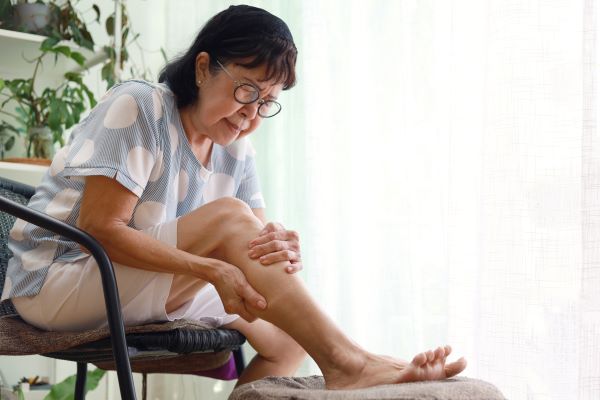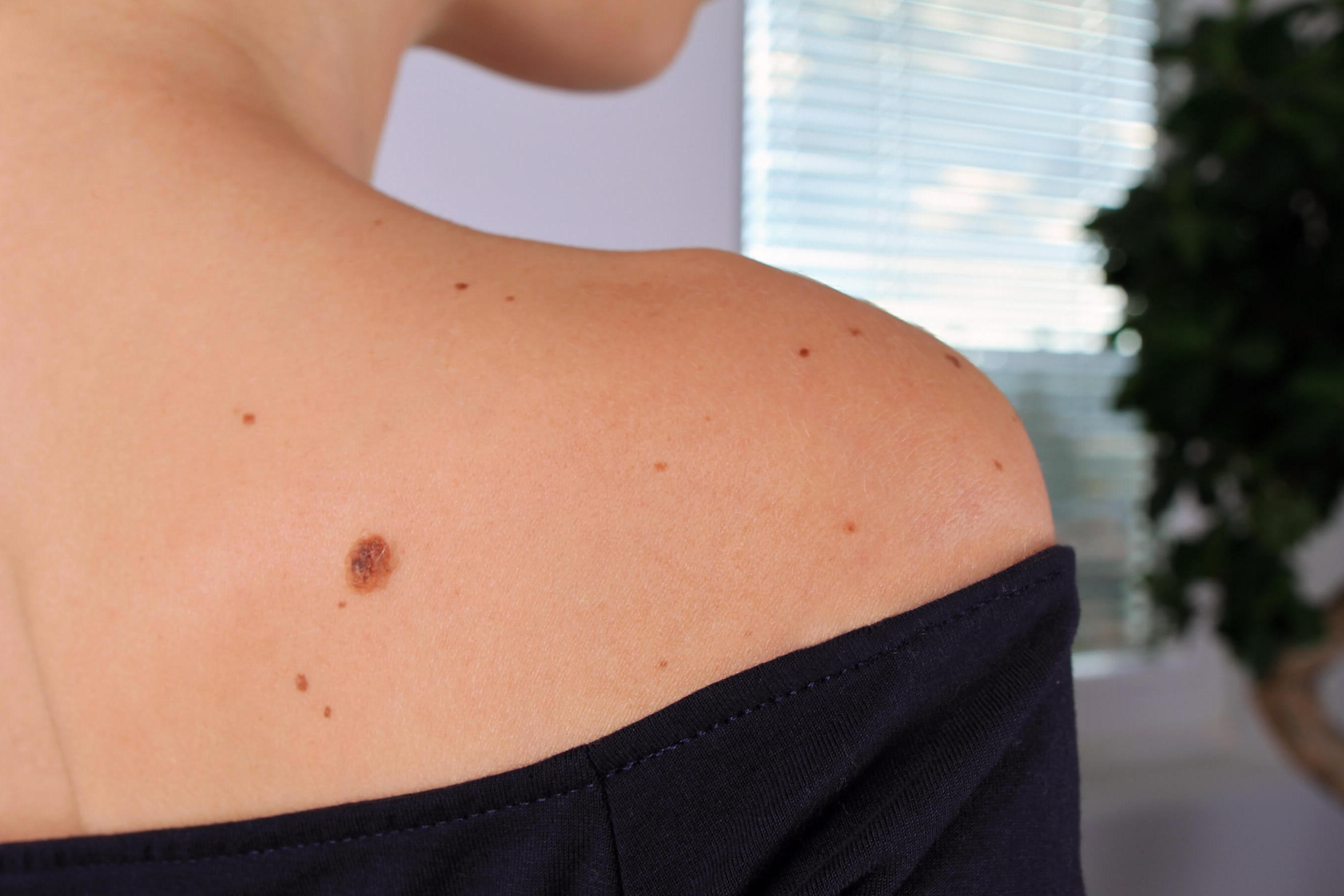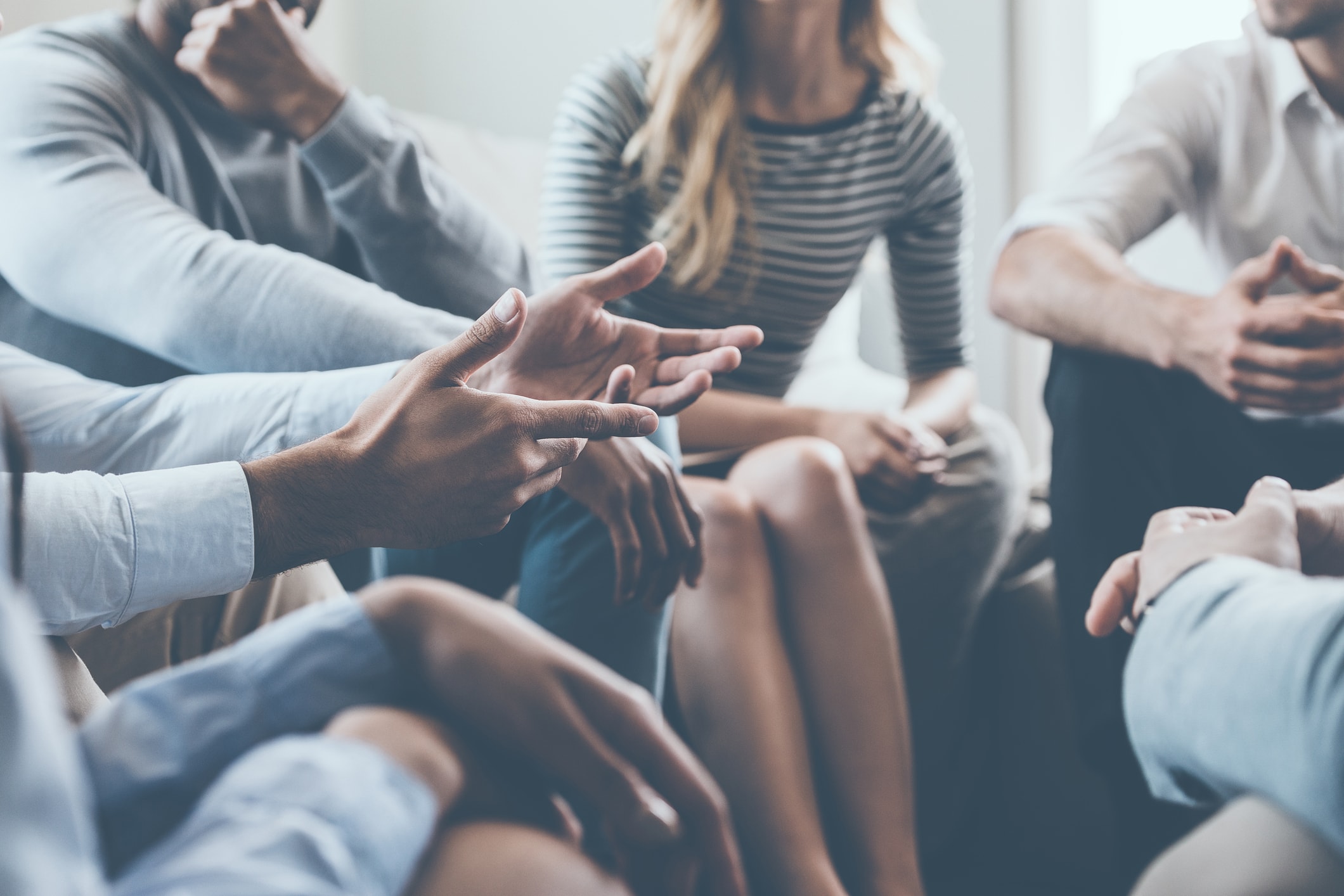-
I have distinct memories of my mum bolting out of her chair, ripping off her shoe and clutching at her twitching calf muscle. She would stretch her toes and massage her leg, sometimes with tears in her eyes. It would soon be over, and she would slump back in her chair to catch her breath. She, like so many of us, suffers from regular muscle cramps. Muscle cramps might be common but their sudden and intense nature make them a real pain to deal with.
We spoke with Amplar Health Online Doctor, Dr Helen Surtees about the causes of muscle cramps, how to prevent them, and what to do when they strike.
What is a muscle cramp?
Muscle cramps are uncontrollable, continuous and painful spasms of entire muscle groups, individual muscles, or select muscle fibres. All muscles can cramp but calf and foot muscle cramps are most common. Cramps are usually short lived – from seconds to minutes – but the length of time can vary.
What causes muscle cramps?
The exact cause of muscle cramps is not well understood – there’s variety of factors that can influence their onset, your ‘normal’ or baseline health included. Dr Surtees suggests the most common experience is during or following exercise.
“It's often a case of the muscles fatiguing somewhat through the exercise, and if that's combined with issues where there might be some dehydration or electrolyte disturbances then cramping is much more likely,” she says.
Another trigger for muscle cramps is, surprisingly, sleep.
“If you're in a stage of the sleep cycle and suddenly there's a stimulus to contract the muscle, during a dream for example, the muscle contracts forcefully, causing pain,” says Dr Surtees.
Other risk factors for muscle cramps include:
- Inadequate diet: Certain minerals, such as calcium, potassium, and magnesium, are important for muscle health.
- Weakened muscles: From injury, ageing or underuse.
- Dehydration: From illness (gastroenteritis, for example) or excessive sweating.
- Wearing high heels for a long time: Walking speed and stride length decreases with increasing heel height, which can overload the foot and calf muscles.
How to prevent muscle cramps
Here are some of the things Dr Surtees recommends for preventing muscle cramps.
Warm up before exercise
For exercise-related muscle cramps, your pre-workout warm-up is key.
Dr Surtees highlighted that stretching all the various muscle groups properly has shown to reduce the chance of muscle cramps.
“You should go through gentle stretches at first and then move into a full stretch; a stepwise progression rather than going for the maximum stretch straight away.”
Electrolyte drinks
There is some research1 to show that drinking oral rehydration solution (electrolyte drinks) reduces susceptibility of exercise-related muscle cramps, but Dr Surtees highlighted that it’s not always necessary. She suggested you may like to incorporate electrolyte drinks if you’re exercising in hot weather, where you’re going to be sweating a lot, or for a long period of time.
Nutrition
You may have heard of drinking pickle juice for muscle cramps. Dr Surtees wasn’t convinced of the perceived benefits.
Instead, she’d prefer you focus on getting minerals such as potassium, magnesium, and calcium into your diet as they are involved in the muscle contraction and relaxation cycle.
You can find these minerals in lots of different foods, for example:
- Potassium: Meat, chicken, fish, chocolate, coffee, and milk.
- Magnesium: Leafy greens, legumes, whole grains, and meat.
- Calcium: Dairy, seafood, some vegetables and fruit, nuts, and seeds.
Stretch before bed
If you experience muscle cramps in your sleep, Dr Surtees recommends going through some slow stretches before bed.
Maintain muscle mass
Dr Surtees explained that cramps can result from weakened muscles, especially in older age.
“If you're older, trying to do light weight bearing exercise is good so that you keep muscle mass,” she says.
How to stop muscle cramps
When a muscle cramp hits, all you can think of is how to stop it – fast. Dr Surtees says the main thing you want to do is stretch the affected muscle. For calf muscle cramps – the most common cramp – you’ll want to stretch your leg out and flex your toes towards your face. If it’s in your thigh (quad), bend your knee up behind you. Hold onto a chair – it can be tricky to balance when you’re in pain!
Try popping an ice pack on the affected area. Applying cold is thought to be effective in the immediate phase of pain as it reduces blood flow to the area.
You can also lightly massage the affected muscle to help ease the cramp.
When to see your GP for muscle cramps
For most people cramps, albeit unpleasant, are harmless. But they can be indicative of underlying medical disorders. Dr Surtees recommends seeing your GP if:
- there is any redness or swelling
- you notice unusual muscle weakness
- you notice a difference in feeling in your legs or toes
- you’re experiencing cramps after very little exercise
- you’re over 50, have diabetes, or an underactive thyroid, with new onset cramps
- you’re not feeling your usual self.
What causes muscle cramps?


24/7 Medibank Nurse Support
Medibank health insurance members can chat to a registered nurse over the phone or online and get guidance on what they can do next. Chat online or call 1800 644 325 anytime of the day or night, 7 days a week at no extra cost.1
1 Some referred services may involve out of pocket costs and waiting periods may apply.
-
Spot the difference: Moles or melanomas?
Learn how to do your own skin checks at home using the ABCDE method. Read our visual guide to checking your moles for symptoms of skin cancer.
-
What causes bad breath?
Find out how to keep your mouth smelling fresh
-
Signs to look out for when a cold is getting more serious
When you should see a doctor for a cold.
-
The health checks to keep in mind at different stages in your life
Have you had these health checks?
-
Bowel cancer: risks, symptoms, diagnosis and treatment
Learn more about bowel cancer
-
Flu myths debunked
Is 'man flu' real? Can you catch the flu from the flu vaccine? We separate flu facts from flu fictions.
References
1 Lau, W.Y., Kato, H. and Nosaka, K. (2021). Effect of oral rehydration solution versus spring water intake during exercise in the heat on muscle cramp susceptibility of young men. Journal of the International Society of Sports Nutrition, 18(1). doi: https://doi.org/10.1186/s12970-021-00414-8.





